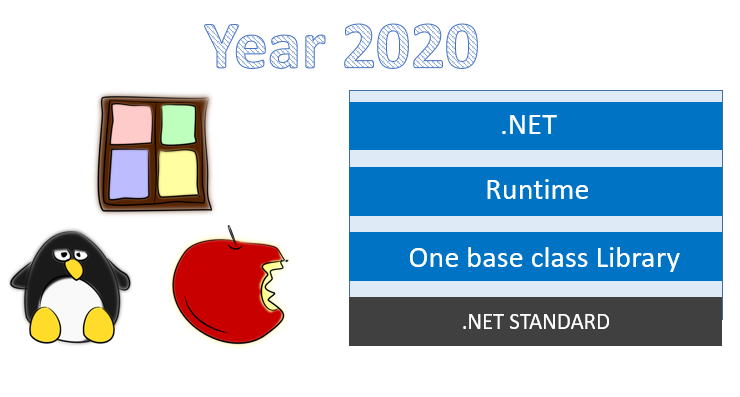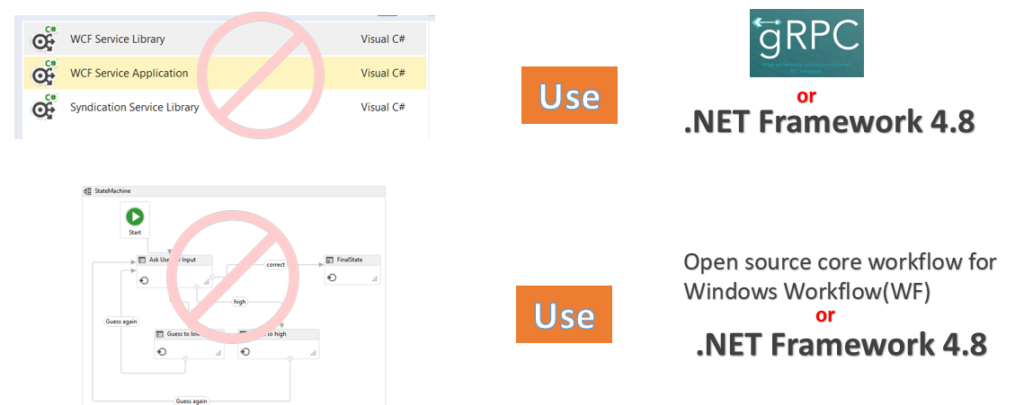Microsoft Introduced .NET 5 which is a unified platform consolidation most of the flavors of .net we see in market today. On September 2019 we will see .NET Core 3.0 after which Microsoft will have .NET 5 in December 2020.
Microsoft is long working to consolidate everything and target all the platforms so that .NET can become the programming language of choice for all developers.

Lot of Framework = Lot of Confusion
We have multiple flavors of Microsoft .NET available for download.
We have .NET Framework for windows only machine which supports Windows and Web applications. Then you have .NET Core which is cross-platform and open-source to develop applications for all major operating system including Mac, Linux, and Windows, and you have Mono/Xamarin for developing mobile apps.
In 2016 .NET Standard came to solve the issue of multiple .NET implementation where it provided a formal specification of API that are common across the large/different landscape. This helped to some extent but still we have different framework to download for doing different things and have to deal with different experience to get our head around.

Unified Platform .NET 5
In 2020 Microsoft plans to go one step ahead and remove all this clutter as well where you don’t have to worry about what type of .NET you need to use. If you wish to develop anything for .NET no matter where you want to run, just get .NET 5 this will combine all the power.
So all the different base class library and framework (from core, mono and .net framework) will be combined, which will still work on top of .NET Standard to give you a uniform run-time behavior and experience.
This will make .NET 5 single platform for building applications which will run on all platform and devices. The big thing it’s doing is unifying Mono and Xamarin with .NET Core.

.NET 5 Advantages
- A single code base with consistent look and feel.
- Produce a single .NET run-time and framework that can be used everywhere.
- Java and swift Interoperability (because of Jit/Mono) power coming together.
- Everything about .NET Core continue to exist
- Single platform and starting point for everything and anything to do with .NET
What’s not in .NET 5
ASP.NET Web Forms
This will not be moved to .NET 5 and Microsoft direction is to use Blazor for the future developments. There are other opens source Framework like Angular, React and if you are good in JavaScript then you should use these modern Single page application which provide faster client rich functionality.

WCF (Windows Communication Foundation) /
WF (Workflow Foundation)
Workflow Foundation/WCF is not getting ported into .NET Core and eventually not to .NET 5

Final Verdict
I have high hope with this move of Microsoft and do believe that .NET 5 has bright future ahead. This will open doors for future development and integration with wide range of applications. Also you don’t need to learn various different languages, if you know C# then you can write code using that which can run from anywhere to everywhere.

